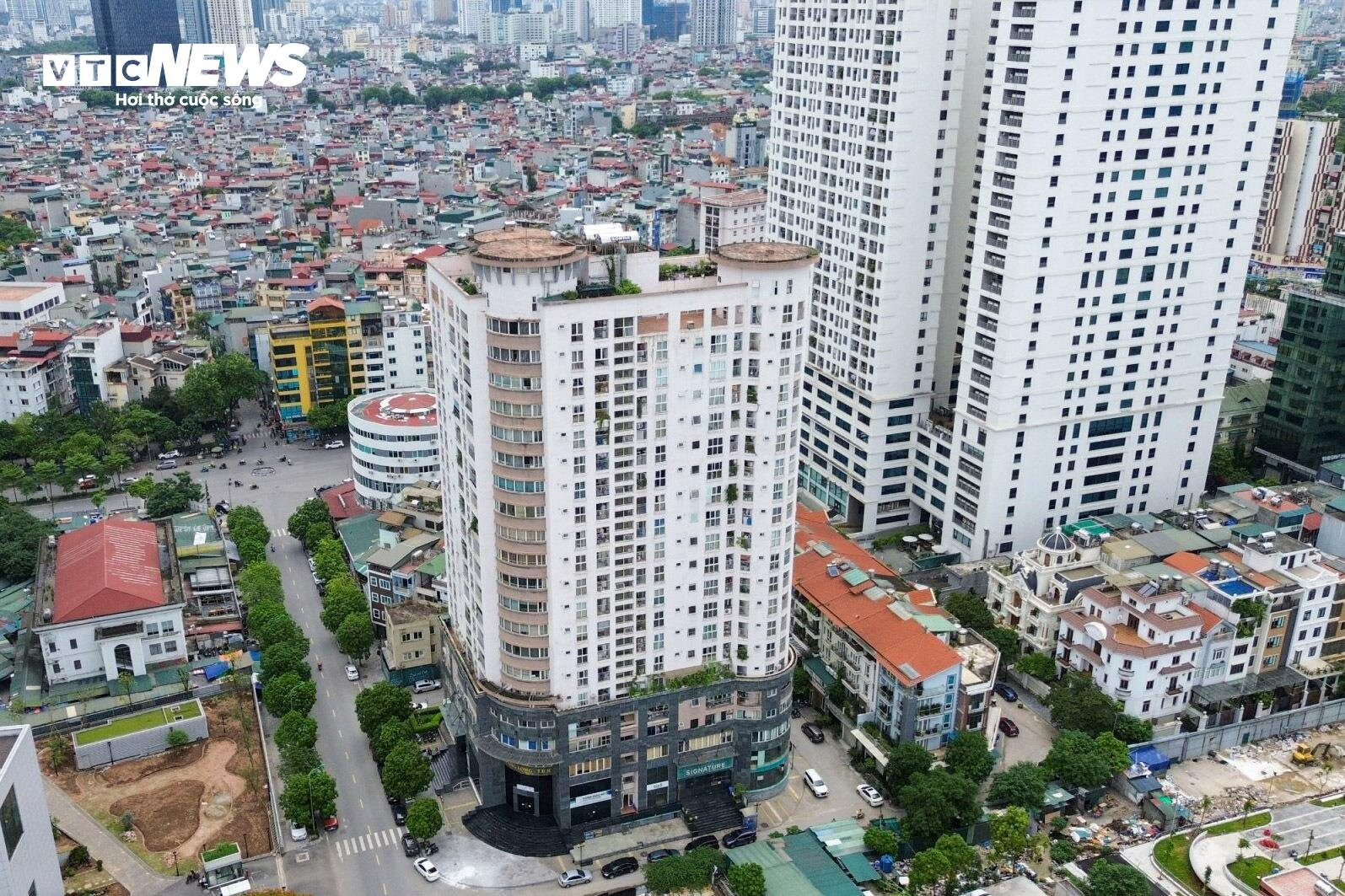The 2024 Housing Law prohibiting the use of apartments for non-residential purposes is facing controversy.

For a long time, many people have used their apartments to run short-term accommodation businesses through the Airbnb business model (a model that connects people who need to rent houses or rooms with people who have rooms to rent). However, the Housing Law, which took effect on August 1, has prohibited the use of apartments for purposes other than residence. This has caused much debate among people and experts since its implementation.
Ms. Nguyen Dieu Nhi (Hoan Kiem District, Hanoi) invested 10 billion VND to buy an apartment in Hoan Kiem District for short-term rental purposes. After more than 4 years of implementation, Ms. Nhi's rental apartments have a fairly good profit margin, with an occupancy rate always above 85%. However, the new regulations have greatly affected her business activities.
If people who use "cash" to invest like Ms. Nhi are worried, investors who have used financial leverage are worried tenfold. Mr. Hong Son (Hai Ba Trung district, Hanoi) said he is borrowing nearly 4 billion VND to invest in this type of investment and if there is no satisfactory solution, he is at risk of losing billions.
“I am sitting on fire, besides the bank interest of several tens of millions of dong per month, the investment in repairs, interior... up to hundreds of millions of dong has not yet recovered the capital. If we cannot rent short term, we will be forced to rent long term and the attraction to customers will be greatly reduced.", Mr. Son analyzed.
From an expert perspective, Mr. Le Hoang Chau, Chairman of the Ho Chi Minh City Real Estate Association (HoREA), commented that this regulation is not suitable for reality and it will be difficult to prohibit the activities of renting houses and apartments in the form of "tourist accommodation business" by day, short term, or hourly using technology according to the "room sharing" application that is being widely used in Vietnam and around the world.
"This "ban" regulation is difficult to enforce in practice because even if it is banned, people will still do it to make a living. Therefore, instead of banning, it is better to strictly manage it.", Mr. Chau suggested. The management solution to limit the situation of causing insecurity and disorder, according to Mr. Chau, is to stipulate that if the owner wants to use the apartment for tourist accommodation, he must register his business, pay taxes and be responsible for managing the tenants.
According to experts, legally, the provisions of the Housing Law 2023, the implementing guidelines and Official Dispatch 4757/2020 of the Ministry of Construction have determined that using apartments for purposes other than residential purposes is strictly prohibited. However, if understood as prohibiting the use of apartments for purposes other than residential purposes and also prohibiting short-term rentals, it is inappropriate and does not ensure a strict legal basis.
Because the nature of the Airbnb rental service is that the tenant uses the apartment for the purpose of living, the law does not have any regulations defining how many days a short-term rental is or prohibiting the owner from renting out his apartment. In fact, the current business owner is not prohibited from renting out long-term apartments, but short-term rental (less than 30 days) is prohibited, which is unreasonable.
Therefore, the ban on renting apartments via Airbnb is not strictly legal. If the owner does not live there, they have the right to rent. This model in reality causes some inconvenience to other residents, but instead of banning it, there needs to be a solution to manage it. For example, the owner must register the business, commit to take full responsibility for ensuring security and order and fire prevention and fighting, and not affect the community in the apartment building.
From an opposing perspective, Mr. Nguyen Van Dinh, Vice President of the Vietnam Real Estate Brokers Association, supports the Ministry of Construction's ban on short-term rental apartments. According to Mr. Dinh, most short-term rental apartments often operate spontaneously and do not notify the local authorities. Therefore, management is difficult and even creates loopholes for many bad actors to take advantage of and commit illegal acts.
“Apartments are regulated by Vietnamese law as residential properties and not for business purposes. Short-term rentals by landlords pose a potential risk of disrupting local security and order, causing environmental problems or affecting the surrounding residents.", Mr. Dinh said.
However, Mr. Dinh recommended finding a suitable solution to partially loosen this regulation.The most difficult part is management. Therefore, it is imperative that there is close coordination between the investor, the building management board and the ward/commune authorities. At the same time, the homeowner must also proactively report to the State management agency."Mr. Dinh frankly shared.
To thoroughly resolve this situation, authorities should take comprehensive measures such as providing specific guidance on the management of apartment buildings regarding short-term accommodation business activities as many countries in the world have done...
VN